Progarchives.com has always (since 2002) relied on banners ads to cover web hosting fees and all.
Please consider supporting us by giving monthly PayPal donations and help keep PA fast-loading and ad-free forever.
/PAlogo_v2.gif) |
|
Post Reply 
|
Page 12> |
| Author | |||
Fernandes Vargens 
Forum Newbie 
Joined: September 06 2016 Location: A Distant Land Status: Offline Points: 21 |
 Topic: Progressive Literature Topic: Progressive LiteraturePosted: March 07 2017 at 12:22 |
||
|
Hi guys; I'm a writer, and for a long time I've been studying, since I was eleven, musical theory, besides play seven instruments - so that's how I've got into this world of prog rock. But, wondering and daydreaming with myself, while readying James Joyce, Virginia Woolf, etc, I could realized that these guys were very important to literature, according to innovation.
Even so, if we look at the prog rock conceptions, we see it's a complex kinda of art, which has not borders. My question is, how could be prog rock conception converted to literature? Long books? Complex vocabulary? Irony? haha. I'm looking for techniques. (english is not my first language; so, forgive me any mistake) Thanks.
|
|||
 |
|||
Logan 
Forum & Site Admin Group 

Site Admin Joined: April 05 2006 Location: @ wicker man Status: Offline Points: 32658 |
 Posted: March 07 2017 at 12:47 Posted: March 07 2017 at 12:47 |
||
|
When writing, choose a main genre, then throw in various other genre elements into the mix. Add some poetry with unusual metres, or reflect that in prose. Throw in some noodle-y writings into your work that a sane editor might suggest removing. Make your book longer than necessary, and write in the form of an epic. Use multiple climaxes in your book.
|
|||
|
Just a fanboy passin' through.
|
|||
 |
|||
Dopeydoc 
Forum Senior Member 
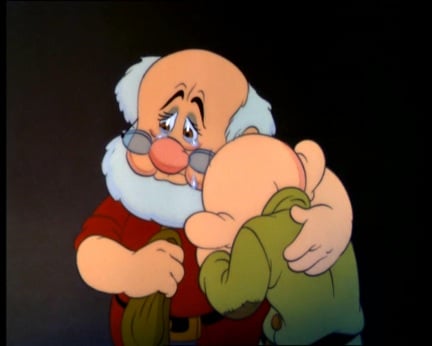
Joined: September 05 2016 Location: France Status: Offline Points: 1366 |
 Posted: March 07 2017 at 14:55 Posted: March 07 2017 at 14:55 |
||
|
You can find also some examples in sci-fi:
I Asimov: space rock? K Vonnegut Jr: Extreme rock? A E van Vogt: Math rock? P Boulle: Symphonic? A Huxley: Eclectic? G Orwell: Post rock? ..... What I enjoy in Prog is surprises (intellectual and/or emotion), and sci-fi provides just that. |
|||
 |
|||
omphaloskepsis 
Forum Senior Member 
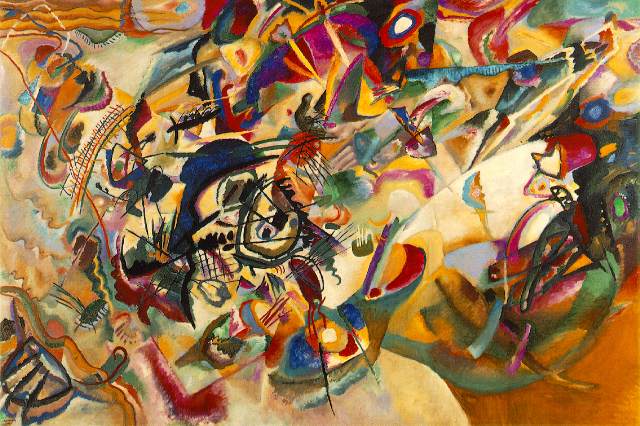
Joined: October 19 2011 Location: Texas Status: Offline Points: 5902 |
 Posted: March 07 2017 at 15:01 Posted: March 07 2017 at 15:01 |
||
|
James Joyce and Virginia Woolf are good examples of progressive literature. As you probably know Joyce's Ulysses' Siren episode 11 is modeled on a classical symphony. There are enough techniques ensconced in the Sirens Episode that it would take years to master all of them. I think David Foster Wallace's-Infinite Jest qualifies as primo progressive literature.
Edited by omphaloskepsis - March 07 2017 at 15:12 |
|||
 |
|||
Logan 
Forum & Site Admin Group 

Site Admin Joined: April 05 2006 Location: @ wicker man Status: Offline Points: 32658 |
 Posted: March 07 2017 at 15:07 Posted: March 07 2017 at 15:07 |
||
|
^^ I'd say Huxley: Krautrock.
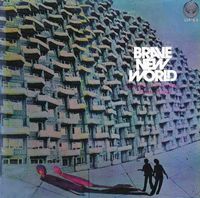 Couldn't resist as Brave New World's Impressions on Reading Aldous Huxley is one of my favourite albums. Edited by Logan - March 07 2017 at 15:08 |
|||
|
Just a fanboy passin' through.
|
|||
 |
|||
Icarium 
Forum Senior Member 
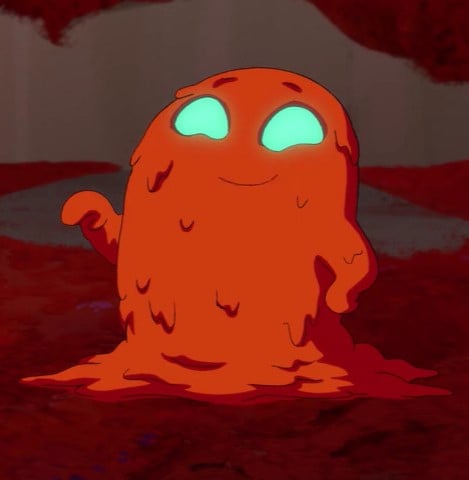
VIP Member Joined: March 21 2008 Location: Tigerstaden Status: Offline Points: 34050 |
 Posted: March 07 2017 at 15:43 Posted: March 07 2017 at 15:43 |
||
|
samuell beckett - rio
|
|||
 
|
|||
 |
|||
verslibre 
Forum Senior Member 
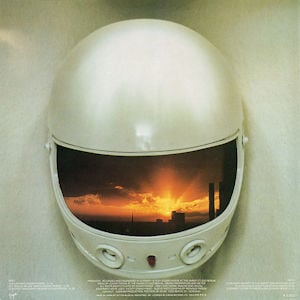
Joined: July 01 2004 Location: CA Status: Offline Points: 15000 |
 Posted: March 07 2017 at 16:13 Posted: March 07 2017 at 16:13 |
||
|
Stephen King: prog-metal.
|
|||
 |
|||
Fernandes Vargens 
Forum Newbie 
Joined: September 06 2016 Location: A Distant Land Status: Offline Points: 21 |
 Posted: March 08 2017 at 04:41 Posted: March 08 2017 at 04:41 |
||
But, what form do you think it is? 'Cause, both, Joyce and Woolf, used "stream of consciousness" a lot; like, kinda all the Ulisses uses that; it has not story, or at least a complex story, it's a bunch of thoughts.
|
|||
 |
|||
Dean 
Special Collaborator 

Retired Admin and Amateur Layabout Joined: May 13 2007 Location: Europe Status: Offline Points: 37575 |
 Posted: March 08 2017 at 06:08 Posted: March 08 2017 at 06:08 |
||
|
While wandering lost on the Nazca Plate (an oblique Yes TFTO reference) the protagonist in one of my novels sings Van der Graaf Generator songs to himself to pass the time...
|
|||
|
What?
|
|||
 |
|||
omphaloskepsis 
Forum Senior Member 

Joined: October 19 2011 Location: Texas Status: Offline Points: 5902 |
 Posted: March 08 2017 at 06:57 Posted: March 08 2017 at 06:57 |
||
|
I think you should study the Sirens episode of Ulysses since it's modeled on a symphony and an opera. Not only do the first two pages sound like an orchestra warming up, the 2 pages are also an overture. Each line will appear again, in order through the rest of the episode. The last line of the episode is also the last line of the overture. Here are the opening lines...
"BRONZE BY GOLD HEARD THE HOOFIRONS, STEELYRINING IMPERthnthn thnthnthn. Chips, picking chips off rocky thumbnail, chips. Horrid! And gold flushed more. A husky fifenote blew. Blew. Blue bloom is on the Gold pinnacled hair. A jumping rose on satiny breasts of satin, rose of Castille. Trilling, trilling: I dolores. Peep! Who's in the... peepofgold? Tink cried to bronze in pity. And a call, pure, long and throbbing. Longindying call. Decoy. Soft word. But look! The bright stars fade. O rose! Notes chirruping answer. Castille. The morn is breaking. Jingle jingle jaunted jingling. Coin rang. Clock clacked." Most of the episode occurs in an Irish pub. The protagonist Bloom goes to the pub to have lunch. Meanwhile Bloom's wife Molly is having an affair with Blazes Boylan. Joyce assigned each character a musical instrument. Women are flutes, cymbals, oboes, and piccolos. Men- drums, tuba, bass, ect. As Bloom is eating lunch, Mary is consummating her affair with Blazes Boylan. If you read the text out loud you can literally hear the sex in the melody, complete with a magnificent crescendo. Here's a segment... " Singing. Waiting she sang. I turned her music. Full voice of perfume of what perfume does your lilactrees. Bosom I saw, both full, throat warbling. First I saw. She thanked me. Why did she me? Fate. Spanishy eyes. Under a peartree alone patio this hour in old Madrid one side in shadow Dolores shedolores. At me. Luring. Ah, alluring. -- Martha! Ah, Martha! Quitting all languor Lionel cried in grief, in cry of passion dominant to love to return with deepening yet with rising chords of harmony. In cry of lionel loneliness that she should know, must Martha feel. For only her he waited. Where? Here there try there here all try where. Somewhere. -- Co-me, thou lost one! Co-me thou dear one! Alone. One love. One hope. One comfort me. Martha, chest note, return. -- Come! It soared, a bird, it held its flight, a swift pure cry, soar silver orb it leaped serene, speeding, sustained, to come, don't spin it out too long long breath he breath long life, soaring high, high resplendent, aflame, crowned, high in the effulgence symbolistic, high, of the ethereal bosom, high, of the high vast irradiation everywhere all soaring all around about the all, the endlessnessnessness... -- To me! Siopold! Consumed. Come. Well sung. All clapped. She ought to. Come. To me, to him, to her, you too, me, us. -- Bravo! Clapclap. Goodman, Simon. Clappyclapclap. Encore! Clapclipclap. Sound as a bell. Bravo, Simon! Clapclopclap. Encore, enclap, said, cried, clapped all, Ben Dollard, Lydia Douce, George Lidwell, Pat, Mina, two gentlemen with two tankards, Cowley, first gent with tank and bronze Miss Douce and gold Miss Mina. Blazes Boylan's smart tan shoes creaked on the barfloor, said before. Jingle by monuments of sir John Gray, Horatio onehandled Nelson, reverend father Theobald Matthew, jaunted as said before just now. Atrot, in heat, heatseated. Cloche. Sonnez la. Cloche. Sonnez la. Slower the mare went up the hill by the Rotunda, Rutland square. Too slow for Boylan, blazes Boylan, impatience Boylan, joggled the mare. An afterclang of Cowley's chords closed, died on the air made richer." By now Joyce's use of onomatopoeia is obvious and a great help when creating prose from music. It also helps that Molly and Blazes Boylan are opera singers. Progressive music has many layers and so does Ulysses. It would behoove you when writing your story to include several musically inclined characters. Create a layer cake of prose. I'm am only hitting a few of the highlights. Every chapter of Ulysses is written in a different style. One chapter is an entire play. The 18th and last chapter is the only chapter told from a woman's (Molly) point of view and has no punctuation. How appropriate. Not only that, each chapter is based on a color, food type, body part or organ, time of day, et cetera ad infintum. Stuart Gilbert interviewed James Joyce and wrote a wonderful book on James Joyce's Ulysses and Joyce's techniques. You can buy a used copy on Amazon for a dollar. I found Gilbert's campanion book indispensable. Every time I reread Ulysses I read Gilbert. Gilberts companion book will supply you with more literary techniques then you could use in a lifetime. Enjoy creating your masterpieces! https://www.amazon.com/James-Joyces-Ulysses-Stuart-Gilbert/dp/0394700139/ref=sr_1_1?s=books&ie=UTF8&qid=1488979743&sr=1-1&keywords=stuart+gilbert+james+joyce+ulysses Perhaps you could assign a progressive rock band to different chapters of your book. The Sirens chapter reminds me of Gentle Giant. You could have a Pink Floyd chapter, YES, Behold...The Arctopus, Jethro Tull, and an Italian Progressive chapter. The possibilities are limited only by your imagination, will power, and talent. Edited by omphaloskepsis - March 08 2017 at 07:56 |
|||
 |
|||
Dean 
Special Collaborator 

Retired Admin and Amateur Layabout Joined: May 13 2007 Location: Europe Status: Offline Points: 37575 |
 Posted: March 08 2017 at 09:34 Posted: March 08 2017 at 09:34 |
||
The problem as I see it is one of interpretation. When creating a [Prog] concept album from a literary source (which practically every poster thus far has misunderstood this thread to be about) it is impossible for the [Prog] composer to translate every nuance of a 400 page novel into 60 minutes of music with perhaps 100 lines of verse in the form of lyrics. Therefore often what we get are "music inspired by..." concepts such as Music Inspired by The Snow Goose (by Camel) and Music Inspired by Lord of the Rings (by Bo Hanson and by Mostly Autumn). I tend to view these kind of albums as soundtracks to imagined films, especially the instrumental ones. Seldom do we get real narrative adaptations of these literary works into [Prog] concept albums simply because the song-suite format doesn't lend itself to linear story telling - at best the composer hires some deeply sonorous voiced actor like Richard Burton, David Hemmings or Patrick Stewart to provide a spoken narration between the toe-tapping tunes, at worse by sheer brute-force he clumsily incorporates this narrative into each song lyric with tyre-lever and sledgehammer so the final result comes over as some badly scripted comic operetta written by an angst-ridden (40 year old) teenager. More often what the [Prog] composer does is presume we all know the story (after all, that's why they choose to interpret such well known books) so he dispenses with any concept of narrative and just uses the basic chronology of the novel to hang various witty ditties upon. All well and good but here's the rub - unlike watching a movie adaptation of a novel, listening to any of those [Prog] concept albums will not afford you any deeper insight into the work it was inspired by or adapted from since they are simply the composers emotional interpretation conveyed as music, and they certainly are no substitute for reading the work yourself. Now, to address your OP question, flip this around and consider re-adapting one of those adapted/inspired [Prog] concept albums back into a new piece of literature (without referencing the original work) - Could we, for example, listen to Bo Hanson's Watership Down and create a novel that even remotely resembles Richard Adams book without ever reading the original story (or seeing the later animated adaptation)? Would it even be about rabbits? Okay, silly example but I hope we can all see that recreating a narrative from purely instrumental music is completely impossible so this means for it to be even remotely achievable some semblance of the original literary novel's story-line must be retained within the lyrical content of the album. So... now take a [Prog] concept album that isn't based upon an existing work and attempt the same. Sure since there is no extant printed story to compare to whatever we produce is judged less harshly but since interpretation of lyrics (especially in Prog) is contentious enough on a good day that resultant story is going to be based wholly upon whatever the writer believes the songs are about and not (necessarily) what the composer and lyricist actually wrote them about. And that's the nub of the issue - [Prog] concept albums are rarely narrative. And here I believe the whole thing stands or falls flat on its arse. In 2013 playwright Tom Stoppard wrote a radio play called Darkside that was based upon Floyd's Dark Side of the Moon but it is neither an interpretation nor is it a adaptation, as Stoppard says: "I didn't try to make a story that was the album writ large in any way. I invented a little story in the spirit of the album, taking a cue as to what level of reality this story might be on." 
English is my first language and I make mistakes by the bucket-full, so you are not only forgiven, you are heartily congratulated. 
You're welcome. Edited by Dean - March 08 2017 at 09:38 |
|||
|
What?
|
|||
 |
|||
AFlowerKingCrimson 
Forum Senior Member 

Joined: October 02 2016 Location: Philly burbs Status: Online Points: 16172 |
 Posted: March 08 2017 at 21:39 Posted: March 08 2017 at 21:39 |
||
How about Franz Kafka? There's even a prog band called Kant Freud Kafka.
|
|||
 |
|||
Atavachron 
Special Collaborator 
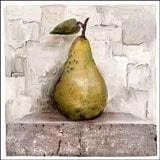
Honorary Collaborator Joined: September 30 2006 Location: Pearland Status: Offline Points: 64349 |
 Posted: March 08 2017 at 21:52 Posted: March 08 2017 at 21:52 |
||
|
Much like music, literary technique goes back farther than we tend to realize, so the innovative approach of say Mark Twain in how he tailored his work to the reality of his characters, or how Jack London so compellingly personified animals, had been an age-old approach to storytelling. It is how and why those writers used those methods to be progressive, renewing ways of yarn-spinning with their own voice.
On the other hand I'm just making this stuff up, which is the point I guess. |
|||
|
"Too often we enjoy the comfort of opinion without the discomfort of thought." -- John F. Kennedy
|
|||
 |
|||
Dean 
Special Collaborator 

Retired Admin and Amateur Layabout Joined: May 13 2007 Location: Europe Status: Offline Points: 37575 |
 Posted: March 08 2017 at 22:34 Posted: March 08 2017 at 22:34 |
||
 still no one reads the OP. I guess this is why this thread has been moved to General Discussions. still no one reads the OP. I guess this is why this thread has been moved to General Discussions. 
|
|||
|
What?
|
|||
 |
|||
Atavachron 
Special Collaborator 

Honorary Collaborator Joined: September 30 2006 Location: Pearland Status: Offline Points: 64349 |
 Posted: March 08 2017 at 22:38 Posted: March 08 2017 at 22:38 |
||
|
^ I read it, I just didn't take time to digest and interpret it, so I wrote the next best thing.
|
|||
|
"Too often we enjoy the comfort of opinion without the discomfort of thought." -- John F. Kennedy
|
|||
 |
|||
Logan 
Forum & Site Admin Group 

Site Admin Joined: April 05 2006 Location: @ wicker man Status: Offline Points: 32658 |
 Posted: March 10 2017 at 12:53 Posted: March 10 2017 at 12:53 |
||
|
I read the original post, but may have misinterpreted it (the fault would hardly lie on the OP end). Sorry, Fernandes, if I misunderstood. It happens less rarely than I would wish. I moved the topic before, and will move the topic back to the Progressive Lounge per your decision on topic placement.
 Thanks. Thanks.Edited by Logan - March 10 2017 at 15:48 |
|||
|
Just a fanboy passin' through.
|
|||
 |
|||
omphaloskepsis 
Forum Senior Member 

Joined: October 19 2011 Location: Texas Status: Offline Points: 5902 |
 Posted: March 10 2017 at 17:45 Posted: March 10 2017 at 17:45 |
||
Oh yeah, Kafka would qualify. The dreamy, ironic, expressionistic, and bizarre agglomeration of all things Kafka (in the right hands) would be an ideal template for a progressive rock album.
|
|||
 |
|||
Fernandes Vargens 
Forum Newbie 
Joined: September 06 2016 Location: A Distant Land Status: Offline Points: 21 |
 Posted: March 10 2017 at 17:47 Posted: March 10 2017 at 17:47 |
||
no problem. :)
|
|||
 |
|||
Fernandes Vargens 
Forum Newbie 
Joined: September 06 2016 Location: A Distant Land Status: Offline Points: 21 |
 Posted: March 10 2017 at 17:52 Posted: March 10 2017 at 17:52 |
||
|
Concerning James Joyce, though I've cited him, I think he is OVERRATED! Ulysses has nothing besides style; I mean, it's a bunch of nonsense things which create a new, but not an useful, style of prose, with nothing in it. It could be like a band who add in its music complex harmonies and times, but without a sense, just to say; hey, look, I'm f**king hard, and f**king innovator. To resume Joyce and make him a comparative with music, I'd say James Joyce is a shred, with a pedant art.
Ok, you guys may kill me now. hahah!
|
|||
 |
|||
moshkito 
Forum Senior Member 
Joined: January 04 2007 Location: Grok City Status: Offline Points: 16148 |
 Posted: March 12 2017 at 08:31 Posted: March 12 2017 at 08:31 |
||
Guilty! I'm a writer, and in my earlier days, I had a period of writing poetry that was "based" on the music I heard or the inspiration that it gave me. I even used to have the piece playing loud enough to exterminate neighbors. As I get older, this has changed. Inspiration for me, has stopped being strictly from something on the outside, even music, but from something INSIDE me, and I call it the "inner movie" (Castaneda calls it the "internal dialogue"). and for the past 10 to 15 years it has all been about the ability to see that movie and "translate it", or "transcribe" it from what you are seeing. Sometimes it's too fast, but in general it seems to work. Being that I am a very VISUAL person, it is not only music that gives me these inner views, and a painting can do it just as easily, and it could be a Guernica (thousands of stories there!), and on occasion a Miro (a bit tougher but VERY linear!), and many times a Klimpt or two (what did you have in mind young girl), or as much as TFTO, even if sometimes it feels like the lyrics want to take you somewhere in a highly romanticized way. For me, I would say the music was an inspiration much more than anything else, however, for the actual writing, it was not the music that carried it, but it's "own" movie. My screenplay, for example, had two moments that I saw with Egberto Gismonti and Keith Jarrett in it, however, none else of the screenplay had anything of them in it, since almost all of it came from a set of dreams of mine, EXCLUSIVELY. I do not, EVER, plan anything in writing, poetry, or even these articles here ... but they are an inner feeling, not necessarily a philosophy or an idea ... more like a thought.
|
|||
|
Music is not just for listening ... it is for LIVING ... you got to feel it to know what's it about! Not being told!
www.pedrosena.com |
|||
 |
|||
Post Reply 
|
Page 12> |
| Forum Jump | Forum Permissions  You cannot post new topics in this forum You cannot reply to topics in this forum You cannot delete your posts in this forum You cannot edit your posts in this forum You cannot create polls in this forum You cannot vote in polls in this forum |